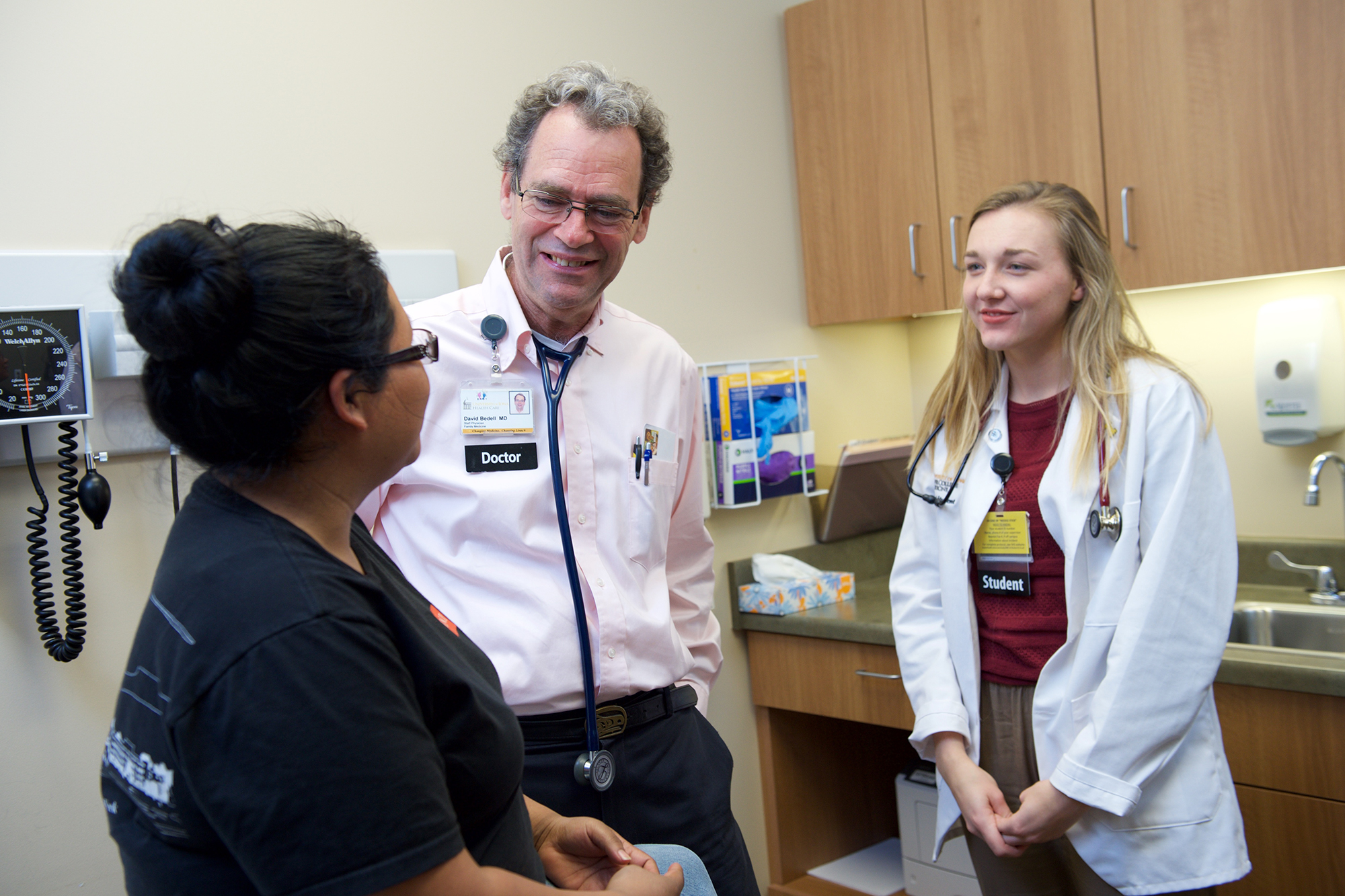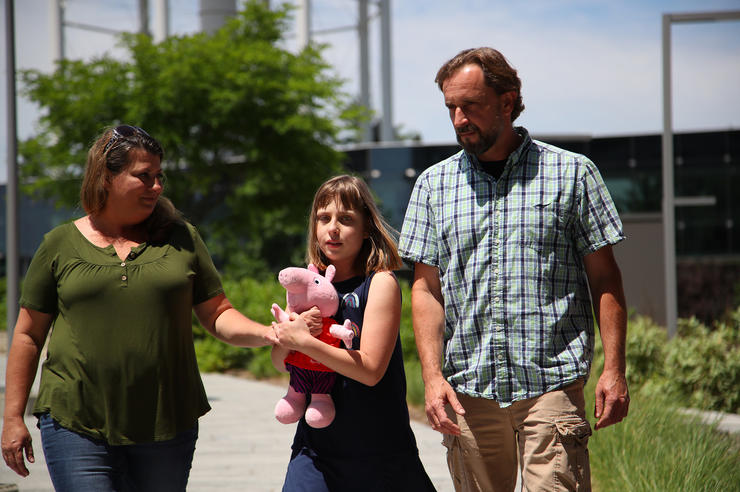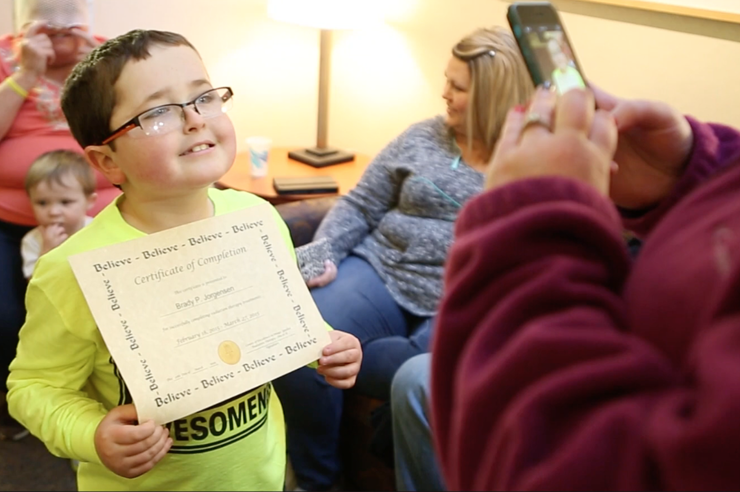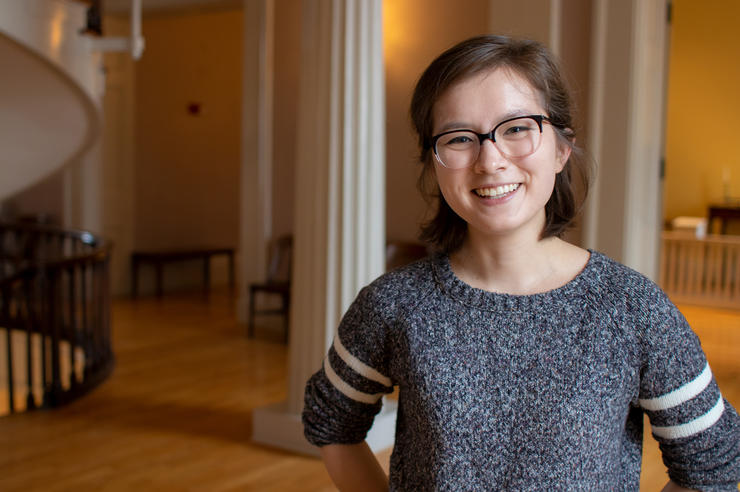Fluency in Spanish helps underserved populations

Following his residency, David Bedell, UI clinical associate professor of family medicine, was a volunteer physician for eight years in El Salvador with the nongovernmental organization Concern America. His medical duties included training community health workers, and he became fluent in Spanish.
“My work in El Salvador showed me the rewards of helping people with needs that are different from, or in some cases exceed, what we usually see in the United States,” Bedell says. “People who are underserved tend to be extremely appreciative. Language proficiency and cultural sensitivity can open a number of doors to extremely rewarding clinical opportunities.”
University of Iowa Health Care’s primary care clinic in Riverside provides a convenient location for family-oriented care. Appointments are available to people of all ages and include services for routine examinations, immunizations, follow-up care, and diagnosing routine medical problems, as well as pregnancy care. The on-site pharmacy provides you with a one-stop visit.
A faculty member since 1995, Bedell worked at the UI community clinic in Lone Tree until it moved to Riverside, where he is medical director. The River Crossing clinic sees many Spanish-speaking patients from across the region, including residents of West Liberty, Columbus Junction, and Washington.
The clinic’s three physicians speak Spanish fluently. Bedell’s longtime association with the clinic and these rural communities means he has cared for generations of families.
“I’m now providing prenatal care and delivering babies for women that I delivered. It’s really flattering when a patient says, ‘I want to see Dr. Bedell because he delivered me,’” he says.
Bedell is a civil surgeon—he is designated to perform immigration physicals—and also medical director at Pioneer Park, a continuing care community in Lone Tree.
“I tell resident physicians, ‘If you practice family medicine and you don’t do OB, over time your patient population ages with you. But if you do OB, you bring new young people into your practice and you stay young as well,’” he says.
“During a pregnancy, you have a chance to get to know a patient and develop a relationship of mutual trust. Then you see them for the next couple of years frequently because of well-child visits. There’s a confidence that persists, even years later,” Bedell says. “If people are having difficulties with domestic violence, for example, they know there’s somebody they can trust to open up to. Or when you recommend a cancer screening or treatment for a chronic disease, that relationship makes them much more likely to listen.”



